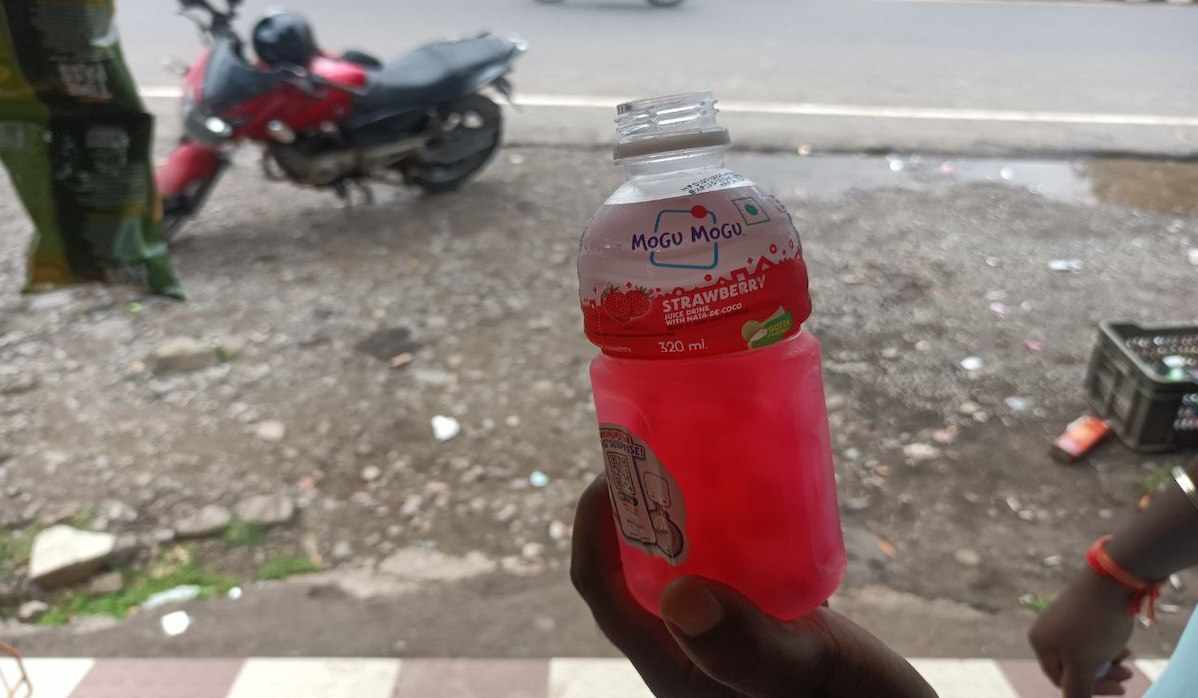Tarun Karthick
Sri Vijaya Puram, 11 December 2024
Despite a long-standing ban on PET bottles smaller than 2 litres in the Andaman and Nicobar Islands, fruit-flavoured drinks in such packaging remain widely available in local markets. A recent visit by Nicobar Times to a shop near Government Senior Secondary School, School Line, revealed such products openly on sale. To document the violation, the team purchased a 320 ml strawberry-flavoured drink in a PET bottle branded as Mogu Mogu, examined it, and photographed it.
This is not the first time such violations have been highlighted. On May 20, 2024, Nicobar Times published a report titled ‘Widespread Availability of Fruit Flavoured Drinks in Banned PET Bottles in Andaman and Nicobar Islands Sparks Concern’, drawing attention to similar instances of non-compliance.
The ban, introduced by the Andaman and Nicobar Administration in 2019, strictly prohibits the use, sale, and distribution of PET bottles smaller than 2 litres for beverages, including water and alcohol. This regulation was part of a broader initiative to combat plastic pollution and preserve the islands’ pristine environment.
Initially, enforcement was stringent. Companies, Distributors and shopkeepers that continued to sell water and beverages in small PET bottles faced immediate action, leading to a significant shift toward alternative packaging such as cans, tetra packs, and larger bottles.
However, recent observations suggest that enforcement has slackened. Local markets are now flooded with fruit-flavoured drinks in PET bottles of less than 500 ml, some of which claim foreign origins while bearing FSSAI license numbers. These products blatantly violate the 2019 ban, raising questions about the effectiveness of current regulatory measures.
Environmental advocates and concerned residents are calling for decisive action from the administration. Distributors of such products must be identified and held accountable to prevent further disregard for environmental regulations. Public disclosure of violators and stringent enforcement measures are necessary to restore confidence in the administration’s commitment to preserving the islands’ natural beauty.
Why is the ban not being enforced? Addressing this issue promptly is essential to upholding the integrity of the regulations and safeguarding the environmental health of the Andaman and Nicobar Islands.

